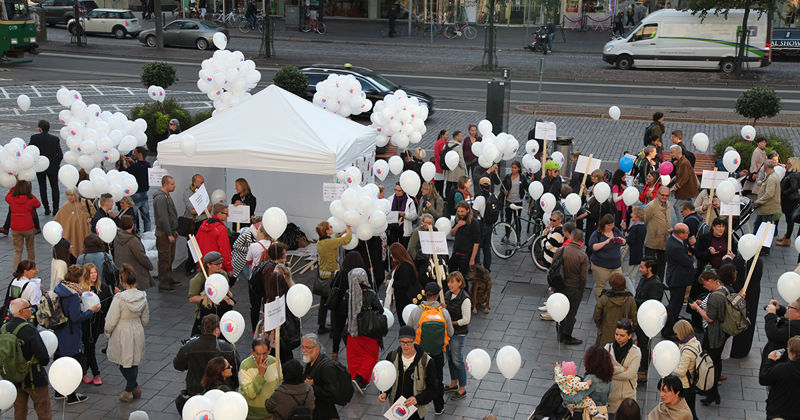How can I take action against racism?

Each of us must address racism and discrimination.
Individuals and organisations alike need to recognise racism in everyday life and social structures, be aware of their own prejudices and do active work against racism. We all have the opportunity to promote equality in our communities.
These three questions help you take your first steps towards anti-racism in your everyday life! We challenge you to discuss the following questions:
- What types of discriminatory practices do you recognise in your community’s activities and structures?
- How can you become more aware about equality?
- How do you intervene in racist behaviour and practices?
Why are these questions so important?
1. Recognise
Racism can occur as conscious actions of individuals or unintended microaggressions, and racism also exists in the structures of society. Structural racism is often unconscious. It may manifest as seemingly neutral practices that still exclude some people, however. By examining the norms and practices of your community, you can learn to recognise and dismantle racism.
In working life, discrimination may be linked to areas such as career counselling or recruitment. According to the FinMonik Survey (2020) , the most common forms of workplace discrimination are the attitudes of colleagues and supervisors, as well as discrimination in career development and pay.
Unconscious discrimination can show itself e.g. in who gets invited to a job interview or whose views are valued in a work project. You can learn more about the different forms of racism and anti-racist vocabulary for example on the glossary page of the Non-Discrimination Ombudsman.
2. Be aware
Work against racism starts with you. We all make unconscious assumptions before getting to know a person, issue or phenomenon. You need to be aware of your assumptions and prejudices to not allow them to guide your behaviour or decision-making. It's also important to understand how social norms impact your actions and interactions.
In working life, for example the last name of an applicant can have an impact on whether they are selected for a job interview, and a young person’s background may effect to the opportunities available to them, both within education and employment. Recognising racism and promoting equality requires learning – plenty of training and materials are luckily available!
These include the THL online course on anti-racism that offers an extensive information package on taking action against racism. Mixed Finns, in turn, has produced a guide for anti-racist work in schools. By listening, training and learning, anyone can promote equality in their own communities.
3. Take action
Although recognising and being aware of racism is important in itself, it must also lead to action – no change can occur without concrete actions. Anti-racism means conscious actions against all forms of racism.
We all have responsibility to intervene in everyday racism, such as discriminatory behaviour or racist jokes. Structural racism again can be dismantled in your everyday life by making the problematic issues visible and acknowledged. This work can be carried out in educational institutions, workplaces and free time communities, as well as through public discussions. You can have an impact on people’s attitudes with your own actions and by setting a positive example.
You can for example take up the recruitment practices of your work community: on what basis are people hired, and do you use an anonymous recruitment process? In which work tasks is it essential to know Finnish, and which tasks could be performed in other languages? Is your work community diverse on all levels of the organisation or only in certain tasks?
Is the language used at your workplace respectful to all? Do members of the work community have expertise in equality, or should it be increased? If you notice any faults, ask for more information and give feedback to the management or through anonymous channels. And what is most important: dare to demand change!

Week against racism 18.–24.3.2024
